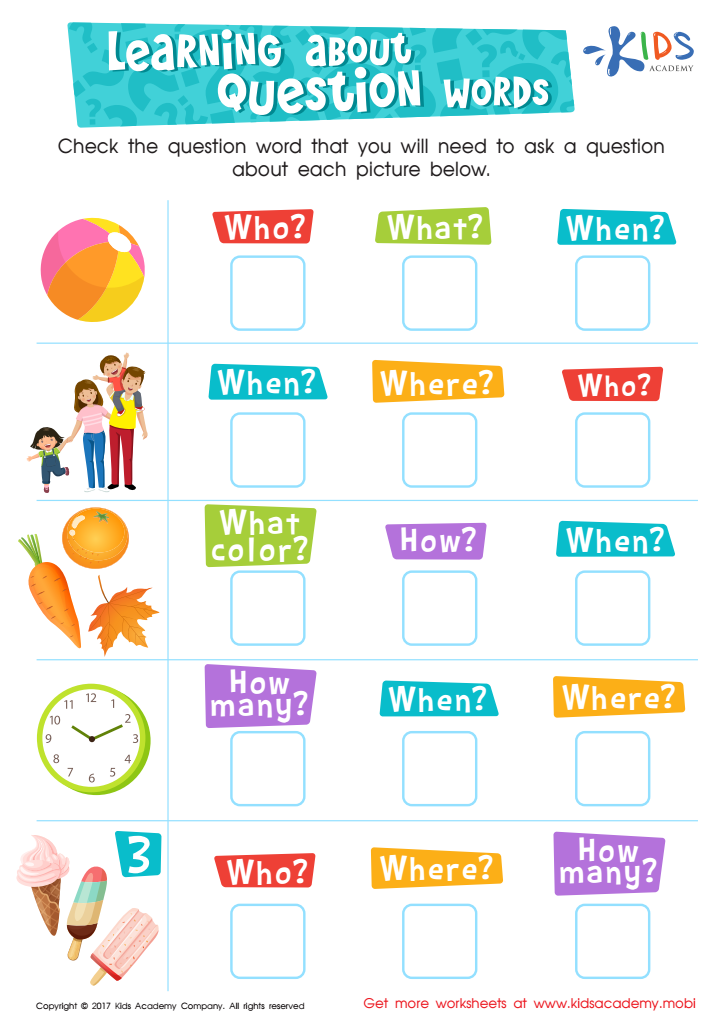Grammar practice Math Worksheets for Ages 3-7
3 filtered results
-
From - To
Our Grammar Practice Math Worksheets for Ages 3-7 seamlessly blend the foundations of grammar with essential math skills. Designed to captivate young learners, these unique worksheets offer engaging activities that sharpen both linguistic and numerical abilities. They feature vibrant visuals and fun exercises focused on key concepts like counting, simple addition and subtraction, and basic grammar rules. Perfect for preschool to early elementary students, our worksheets are crafted to inspire curiosity and promote hands-on learning. Visit Kids Academy to download and print these free resources, and give your child a head-start in math and language mastery.


Learning about Question Words Worksheet
Parents and teachers should care about grammar practice alongside math for children aged 3-7 because both subjects are fundamental to cognitive development, academic success, and overall communication skills. During these formative years, children's brains are highly adaptable and receptive to new information, making it an ideal time to instill foundational skills that will serve them throughout their lives.
Mastering grammar helps young children articulate their thoughts clearly, which is essential for effective communication. Good grammar skills facilitate reading comprehension, enabling children to understand instructions, storylines, and information more easily. This also positively impacts their ability to learn other subjects, including math.
Simultaneously, early math practice enhances problem-solving abilities and logical thinking. Foundational math skills, from counting and number recognition to simple addition and subtraction, build the schema for more complex mathematical understanding later on. Math skills are also crucial for everyday tasks, fostering independence and self-confidence in young learners.
Integrating grammar and math practice enables a comprehensive learning experience that can make children more adaptable learners. Early intervention in both areas ensures that children are not just playing catch-up as they progress through school, setting them up for success in an increasingly complex world. The intertwining of these skills nurtures overall academic development and can ignite a love for lifelong learning.


 Assign to My Students
Assign to My Students




















